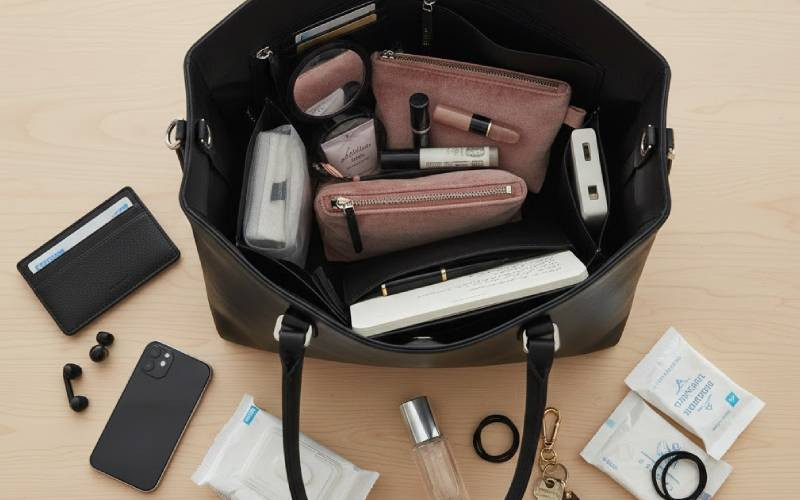
UNDP Resident Representative Nardos Bekele-Thomas was recently honoured by the African Union alongside several woman presidents and first ladies. She talks to SYLVIA WAKHISI about staying humble, taking risks and making a difference.
It’s shortly after 8am on a chilly and wet Thursday when we arrive at the home of Nardos Bekele-Thomas, the woman who leads designated representatives of the United Nations Secretary-General for development operations in Kenya.
Upon noticing our arrival, she quickly steps out to receive us, looking radiant and ready to tackle another workday. But before heading to work, she has spared that moment for the interview, one that she says she was anxious about.
After offering us breakfast, we settle down for the interview, which is marked by episodes of laughter and long pauses as she reflects on her early days as a young girl and the powerful and successful woman she has become today.
She is currently the Resident Representative of the United Nations Development Programme (UNDP) and the Resident Coordinator of the United Nations System in Kenya since September 2013. She also served for more than four years as Deputy Resident Representative of UNDP in Kenya.
Back in her school days, she was a bright and the youngest girl in her university, something that saw her earn an award from the late Haile Selassie, Emperor of Ethiopia.
“My grandparents had 120 grandchildren and I was the youngest. My grandfather used to say that I would one day be a great person and that made my confidence grow,” says Nardos.
Recently, Nardos was recognised and honoured as a 2015 Woman of Excellence by the African Union - Diaspora African - Forum (AU-DAF).
She was honoured along with Mama Ngina Kenyatta, former First Lady of Kenya, Liberia Head of State Ellen Johnson Sirleaf, the former President of Malawi Joyce Banda, Mama Winnie Madikizela-Mandela, former wife of the late President of South Africa Nelson Mandela among others.
Staying humble
“I am extremely humbled to be part of this group. It has fuelled my commitment to work even harder,” says Nardos. “I always take risks and go beyond my calling, and I am not constrained by institutional barriers.”
Despite her achievements, Nardos has remained humble and this is evident from the way she closely relates and interacts with her employees back at home.
“Our secretaries, guards, nannies or drivers are people who in their own capacity are very critical in our society. God has made us equal,” she says.
Nardos was born 57 years ago in Addis Ababa, Ethiopia in a family of 14 siblings-she is the fifth born. Her late father was in public service and also ran several businesses, which her mother assisted in managing.
According to Nardos, her father owned several houses, which he rented out and at the same time did a lot of farming. But after the revolution in Ethiopia, the land was nationalised and he was thrown out.
“I grew up in a family full of love and affection. My parents brought us up under strict values and professionalism as they emphasised the importance of education. They taught us the importance of respect, hard work and helping people,” says Nardos. “But after the revolution took place, everything changed. As a family, we went through traumatic events and I even ended up losing my two brothers. It was very painful,” she bitterly recalls.
At the age of 18, Nardos left her country under difficult circumstances. The painful events that had unfolded and the memories of her two brothers haunted her mind day and night, but she had to pick up the pieces and move on.
She offers: “I travelled to Moyale, which is not far from Ethiopia, for a literacy campaign under the Mengistu regime in 1975. I stayed there for a year and came face to face with the harsh realities of life that people were exposed to in that area. That experience somewhat altered my thoughts. I started comparing my life back in Ethiopia, which I thought was harder to that which the people of Moyale had to contend with and realised I had lived a much better life. It made me start appreciating the opportunities and blessings I had.”
She says one of the women who was a beneficiary of the campaign failed to attend classes and this got her worried. She decided to pay her a visit at her house to confront her.
“I found out that she had three children and a husband who was so engrossed in alcohol. She explained to me that as a mother and wife, she literally had no time to take part in any other activity because of the huge demands that came with fending for her family. For me, that whole experience was a game changer,” says Nardos. “I thought to myself if she could make it with all the difficulties, then I would also succeed in helping many other people like her lead a better life,” she adds.
Upon completion of the national literacy campaign, Nardos went back to her home country.
She enrolled at Addis Ababa University for her undergraduate studies where she pursued Economic Development and Planning, Applied Statistics and Political Economy, which she completed in 1982. She would later enrol at New York University for a Masters in Economic Development, Monetary Economics and Econometrics and graduated in 1985. In 1987, she was posted to India, her first international posting, where she worked as an administrative officer at UNDP.
Prior to that, she had worked as a research assistant and tutor in basic mathematics and statistics at Addis Ababa University, local national officer/programme assistant with UNDP Liaison Office in Ethiopia, regional programme assistant Division for the Regional Programme, UNDP in New York as well as assistant to the principal technical advisor - Regional Programme for Water Resources and Sanitation UNDP, New York. She would later be posted to Bhutan, which she describes as a fascinating country.
Nardos then relocated to Kenya to do some consultancy work and joined her husband, Adebisi Babatunde Thomas, who had served as the resident representative of the United Nations Development Programme in the early 1980s.
Over the last three decades, Nardos has also lived and served in various capacities in countries such as Ethiopia, Comoros Islands, Benin, Uganda, Chad, Central Africa Republic, Cameroon, Gabon and New York.
Nardos and Adebisi have five children. She terms her husband as an accomplished and exemplary man who has remained supportive and believes in women empowerment.
“We are part and parcel in everything professionally, and I am just trying to fit in his shoes. That has really helped us grow together. Now that he is retired, he is putting his energy into the establishment of a hospital and is also working with Strathmore University to start an MBA programme in Entrepreneurship,” says Nardos.
Family life
“When our children were still very young, once he realised that my schedule for the day was tight and his was light, he would always be at home on time and be there for the kids; feed them, play with them and put them to sleep. A supportive husband is the most important thing any woman can be grateful for,” she explains. Nardos is also a PhD candidate at New York University.
In 2007, she was honoured as recipient of the Living Legend Achiever’s Award in recognition of her service and leadership role in the promotion of sustainable human development globally, particularly in Africa. In 2010, she won the Crown of Peace Award from the “Federation for Peace”.
Describing herself as a social person who loves making friends, Nardos says she enjoys holding forums with the youth and women to discuss matters development. She also loves spending time with her family and says her husband is their source of wisdom.
Has it been difficult for her to adapt to life in Kenya? “I have lived in many countries across the globe so moving to Kenya was not a big deal,” explains Nardos.
“I move easily between worlds, but Kenya is the only country where I have lived for many years. I feel so much at peace here. Wherever I go, I make many friends, not really caring where they come from but who they are as a person.”
Her final words end on a typically positive note: “My life experience has been very important. I come from a family, which had everything but on one particular day, everything was gone in a flash, including my two brothers. It made me realise what we have is not permanent, but how we change the lives of others and what we engrave in their hearts is what will be remembered forever.”
 The Standard Group Plc is a multi-media organization with investments in media
platforms spanning newspaper print
operations, television, radio broadcasting, digital and online services. The
Standard Group is recognized as a
leading multi-media house in Kenya with a key influence in matters of national
and international interest.
The Standard Group Plc is a multi-media organization with investments in media
platforms spanning newspaper print
operations, television, radio broadcasting, digital and online services. The
Standard Group is recognized as a
leading multi-media house in Kenya with a key influence in matters of national
and international interest.


